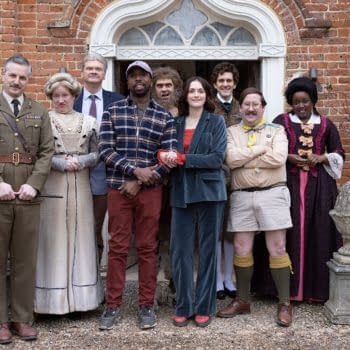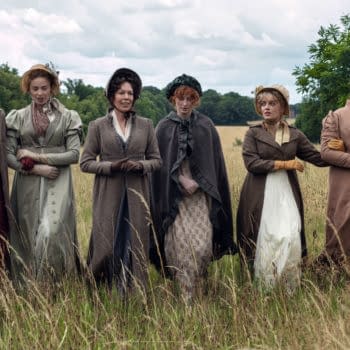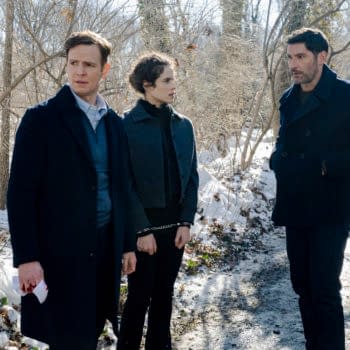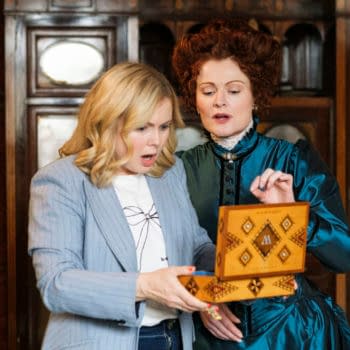Posted in: BBC, Netflix, Review, streaming, Trailer, TV | Tagged: bbc, bleeding cool, cable, Claes Bang, Dolly Wells, dracula, Lucy Westernra, mark gatiss, netflix, stephen moffat, streaming, television, tv
"Dracula" Reveals New, Unwelcome Episode 3 Superpower: Jumping the Shark [SPOILER REVIEW]
…And it was all going so well.
Stephen Moffat and Mark Gatiss' adaptation of Dracula has been campy, goofy and still horrific. The first two episodes were knowing deconstructions of the Gothic Horror genre and an update at the same time. They delved into the subtexts of taboo, sexual terror, homo- or poly-eroticism more overtly than Victorian fiction was allowed to.
Claes Bang is a hoot – his Dracula is a smarmy sex-pest and murderer. He looks like your dad or uncle who gleefully hits on your school friends. Dolly Wells may have her breakthrough role at last as the atheist, feminist, wise-cracking nun Agatha Van Helsing.
Then Episode 3 hit and jumped all the sharks. It practically became a different show from a different time. All the suspense and goodwill built up from the first two episodes were squandered by Episode 3's WTF choices.
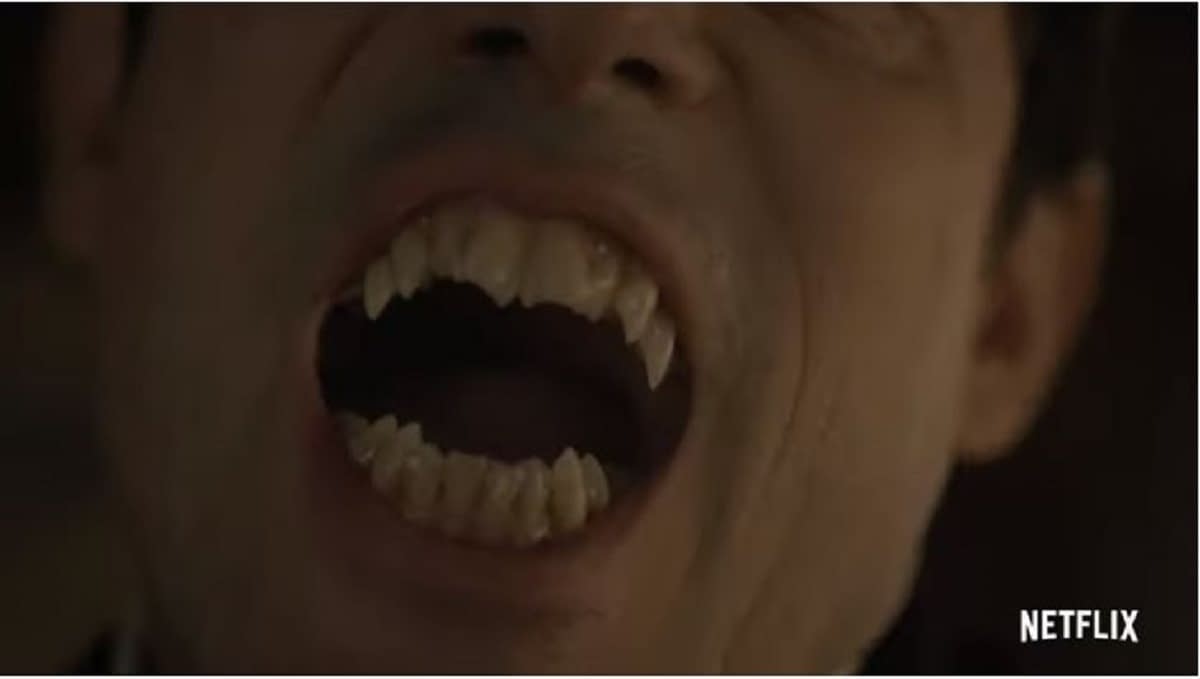
"Dracula": So What Went Wrong?
Episode 3's biggest mistake was sidelining Agatha Van Helsing when she dominated the first two the way Benedict Cumberbatch could dominate Sherlock. The first two episodes established that the heart of the show was the dance between her and Dracula. It sprang to life whenever she was on-screen. Moffat and Gatiss might have written themselves into a corner with her fate in episode 2, and only brought her back as a ghostly presence when it was too little, too late.
The biggest mistake Episode 3 made was jumping ahead 123 years to the 21st Century. Moffat and Gatiss said on the Obsessed With… Dracula podcast that the original book brought the Count to contemporary London, which was the Victorian era then. The reaction to the novel at the time was the frisson readers felt to a medieval monster stalking the present. Moffat and Gatiss wanted to recreate that feel, which is well and good, if they didn't take off in the wrong directions.
The Jonathan Harker Foundation is a comic book secret organisation that just feels silly. It throws the tone of the show into the realm of the ridiculous that the previous two episodes managed not to do. The satirical part about Dracula's lawyer Renfield getting him freed from captivity through a legal writ also steps over the line from knowingness to outright silliness.
Imagine Dracula on the loose in 21st Century London with the police after him and the BBC warning people to look out for him. He becomes the scourge of terror invading England like he was in the book. That would have been an interesting update of that theme. I don't know why they didn't just go all the way with that.
Oh, Lucy!
The worst swerve in episode 3 is the problematic adaptation of the Lucy Westenra subplot. In the book, Lucy was an embodiment of the modern woman who flirted and wasn't tied to just one man. She was an expression of Victorian male anxiety about women taking control for their sexuality. She was, of course, punished for it. I couldn't buy why Dracula was so taken with her. She was too shallow to warrant that much screen time that could have been spent with Agatha Van Helsing. Lydia West does her best with an underdeveloped role and almost sells it, but the script doesn't give her the space.
The 21st Century version of Lucy is a Millennial social media influencer obsessed with her image and has a nihilistic attitude to life. She comes off as vain, selfish and narcissistic, and what happens to her has a whiff of comeuppance and misogyny.
"Dracula": So What Worked?
I liked Dracula's enthusiasm for the simplest luxuries of the 21st Century. His speech about the convenience and comforts that we take for granted that no king from his time ever had is a bit of social commentary Moffat and Gatiss obviously wanted to make.
I liked the reveal that Dracula's phobias were entirely psychological, expressions of his shame and self-loathing. It shows once and for all that Dracula is not a misunderstood emo antihero. He's a coward and a monster.
But in the end, Episode 3 felt like a wasted opportunity. We were primed for a classic battle in Victorian London between Dracula and the forces of order, with more snarky social commentary on top of the effective horror that Moffat and Gatiss are capable of writing. Moffat and Gatiss are very clever, and that comes with an inherent awareness of the absurdity of genre that they just can't resist being snarky about. It's an impulse I can understand since I have it too. They just can't help steering the show into what we ended up with in Episode 3.
If you write popular entertainment, you want to give your audience what they want, but preferably in a way they didn't expect that pleasantly surprises them. If you give them what they don't want at all, they will turn on you, no matter how clever what you do is.
Dracula? You could have been a contender… instead, you knocked yourself out in the third and final round.




